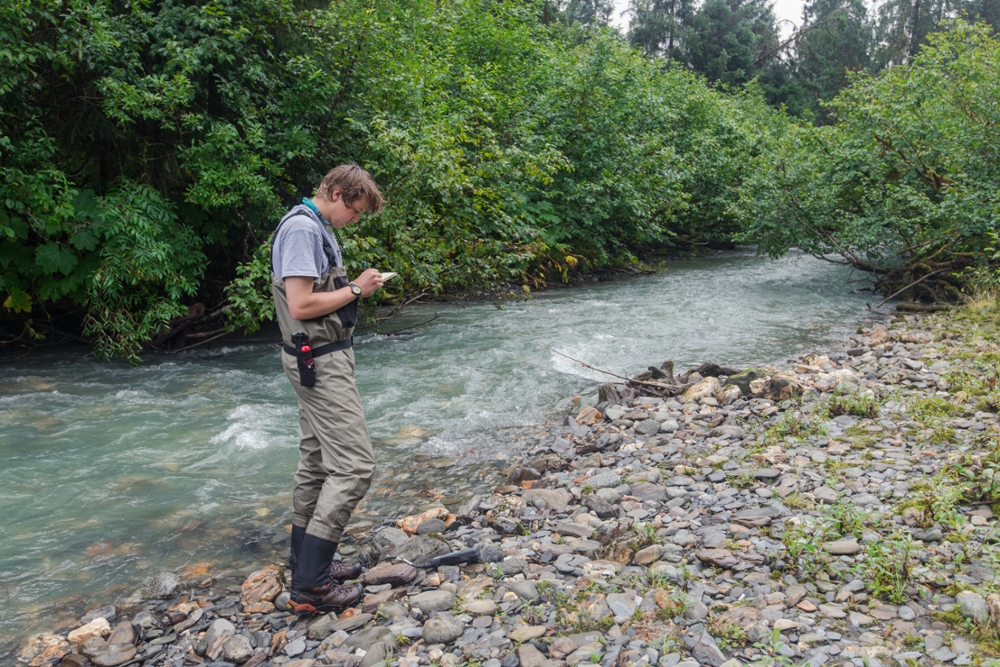The undergraduate research experience at ACRC

My name is Connor M. Johnson, and I’m currently pursuing a B.S. of Environmental Science at the University of Alaska Southeast in Juneau. The past two summers I’ve had the opportunity to engage in undergraduate research at the Alaska Coastal Rainforest Center. For those who don’t know, ACRC is a University/US Forest Service research collaboration where folks from both the Forest Service and the University join forces to conduct research.
Last summer I had the opportunity to help on several different projects, taking regular water samples from streams in the local area and running lab tests. One of the more prominent projects from last summer was an intensive biogeochemical research project at Montana Creek in Juneau. We aimed to answer questions of- what kinds of chemicals are in the water, how much sediment is being transported, what kinds are the things are in the streamflow, and how do they change throughout the season? This meant taking water samples and placing driftnets into the water to catch anything that may be floating downstream. A driftnet is a fine mesh material supported by rebar that is hammered into the stream bed to catch all sorts of plant material, sediment, and insects. Collecting water samples and driftnets was a routine part of my schedule, twice a week, for the entire summer and into the fall.
My part of the project is to take the contents of the driftnet and sort out the insects and organic matter. This gives us a bigger picture of what is happening in the water and helps us predict what may be happening downstream. Processing the contents of the driftnet samples takes time and patience, as each sample can take 4-10 hours to sort through. ACRC employed me during the academic school year to work through these samples, and I was fortunate enough to present the work I had been doing at a poster session at the American Fisheries Society conference in Sitka. The poster session gave me an opportunity to communicate the science I had been doing, along with creating connections and meeting other individuals in my field. It has been an excellent learning experience to be a part of this hands-on process, and I am extremely grateful for the opportunity ACRC has given me.
Throughout my journey, I was granted 10 upper-division credits through the University, which count toward my degree. Not to mention the poster session, with hopes of another poster presentation at the American Water Resource Alliance conference in September 2019. The amount of experience I have gained through my employment at ACRC is unspeakable, and I’m incredibly grateful for every moment.
I encourage other undergraduate students to pursue research opportunities, URECA grants, or Directed research through their university. You won’t regret it! It has been extremely valuable in my development as an undergraduate.
Stay curious!